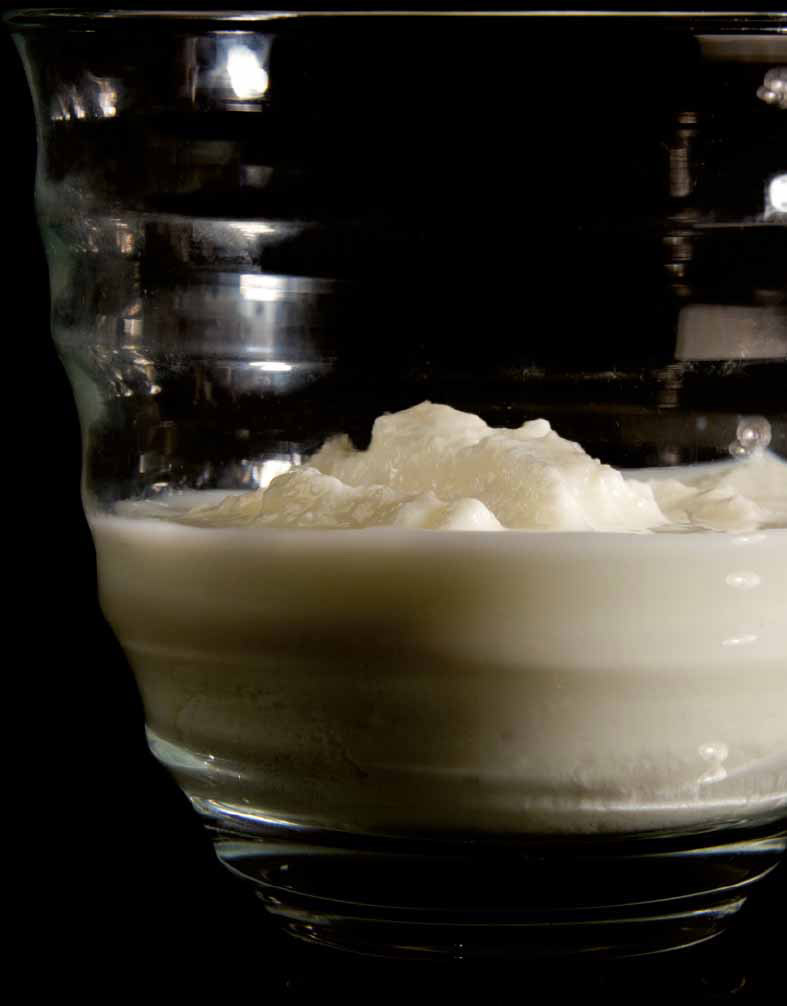
Kefir, sometimes known as Bulgarian yogurt and in Chile, as birds’ yogurt, is the oldest fermented milk that exists. Its origin lies in the mountains of the Caucasus. It has special and valuable properties, as evidenced by the longevity of the people who have consumed it regularly for thousands of years.
Caucasian Muslims believed that the kefir ferment (or grains of the Prophet Mohammed) would lose their strength if people of other religions used them. Therefore, preparation of kefir has long been kept secret. It is believed that the word kefir comes from keif, a Turkish word which means pleasant sensation.
In the past, it was hardly known outside the Caucasus, although Marco Polo mentions it in the stories of his travels to the East. It was almost forgotten for five centuries until, at the beginning of the 19th century, when it was used therapeutically against tuberculosis in European sanatoria. The longevity of the people, who traditionally consumed it, has popularised it in Europe since the beginning of the 20th century.
Kefir is a fungus, a mixture of bacteria and yeasts, which live in symbiosis. There are three types: milk kefir, water kefir and kefir of tea or kombucha.
This creamy beverage, similar to yogurt, has several distinctive features: 7 bacteria are involved in its fermentation, compared to 3 or 4 in yogurt, and the whey, wherein reside its most beneficial elements, are not removed. It is completely digestible, regulates the digestive system and restores intestinal flora.
It’s like a kind of yogurt. The flavour will depend on how long the milk is left in the fungus. It’s usually left for 24 hours and any time thereafter will make it more sour in taste. Despite its many virtues, kefir is too unstable to be produced commercially, so it is difficult to find on supermarket shelves. Since at the moment its preparation is completely by hand, here are some points to consider before making it at home. If you are going to be away for a few days and cannot take it with you, leave it in sugar and water in the fridge for 3 or 4 days, and if you are going to be away for longer than that, drain it thoroughly, dry it and freeze it, because then it will last for several months.
